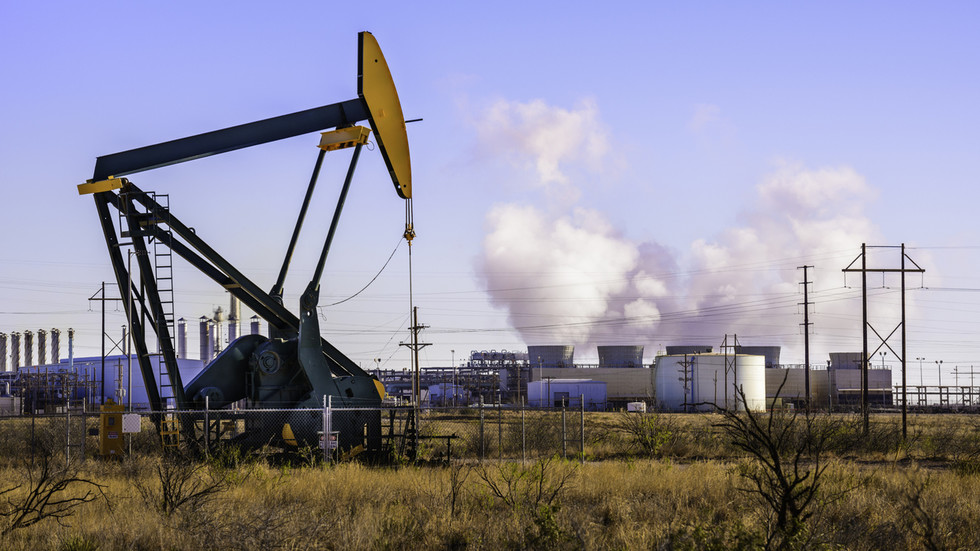
Analysts link the latest surge with dwindling crude inventories at a key storage hub in the US
© Getty Images / dszc
Global oil prices edged closer to $100 a barrel on Thursday amid a drop in stocks at a key storage facility in the US, amplifying concerns of tightening global supplies.
Brent futures climbed 1% to $97.25 a barrel at 11:00 GMT, while US West Texas Intermediate crude (WTI) futures briefly touched $95 per barrel, the highest since August 2022.
Analysts link the latest surge in oil prices with the news from the strategic storage hub in Cushing, Oklahoma, where stocks fell by 943,000 barrels in the fourth week of September due to strong refining and export demand. The inventories there are now at just under 22 million barrels, close to the operational minimum, according to data from the US Energy Information Administration (EIA).
Total US crude stocks dropped by 2.2 million barrels last week to 416.3 million barrels, government data shows, far exceeding industry experts’ predictions of a 320,000-barrel drop.
“Today’s price action seems to be Cushing driven, as it reaches a 22 million bbl low, the lowest level since July 2022,” Bart Melek, managing director of TD Securities, told CNBC. According to the analyst, the global oil market is headed for a “pretty robust deficit” which will keep oil prices at a “high level” for the rest of the year if US storages continue to shrink and the Organization of the Petroleum Exporting Countries and its allies (OPEC+) continues to keep supplies tight.
Earlier this month, oil producing heavyweight and de-facto leader of OPEC Saudi Arabia extended its 1 million barrel per day (bpd) voluntary oil production cut until the end of the year.
Its OPEC+ ally and the world’s second-largest crude producer, Russia, has also recently pledged to extend its voluntary cut in oil exports by 300,000 bpd until the end of the year. Last week, the Russian government introduced a temporary ban on foreign sales of diesel and gasoline in order to stabilize the domestic fuel market.
For more stories on economy & finance visit RT’s business section




